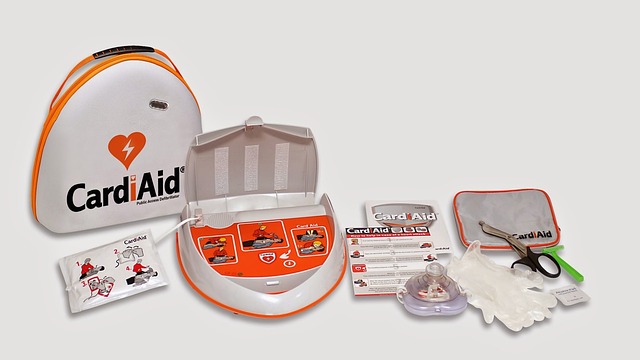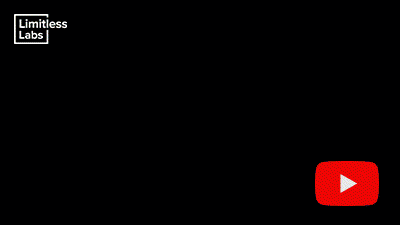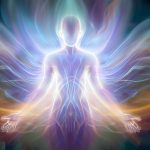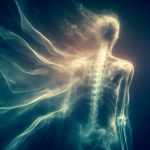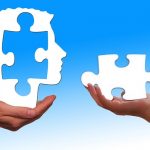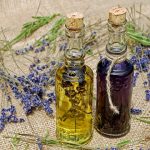I believe that true healing comes from addressing the whole person – not just their physical symptoms.
A stroke can have a profound impact on a person’s life, not only affecting their mobility and speech, but also their emotional well-being and sense of identity.
This is why a holistic approach to stroke recovery is so important.
Holistic stroke recovery means treating the person as a whole, not just their physical deficits.
This includes addressing the psychological and emotional aspects of stroke recovery, as well as focusing on lifestyle changes that can support overall health and wellbeing.
By taking this approach, we can help people recover not only physically but also mentally and emotionally, empowering them to reclaim their lives after stroke.
Addressing Emotional And Psychological Aspects Of Stroke Recovery
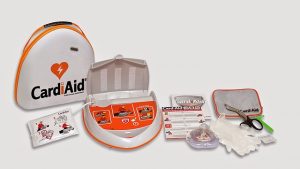 Have you or a loved one recently experienced a stroke? The physical effects of a stroke are often the most apparent, but the emotional and psychological impacts can be just as significant. I understand the importance of addressing these aspects of recovery alongside physical rehabilitation.
Have you or a loved one recently experienced a stroke? The physical effects of a stroke are often the most apparent, but the emotional and psychological impacts can be just as significant. I understand the importance of addressing these aspects of recovery alongside physical rehabilitation.
Counseling services can be an invaluable resource for stroke survivors. The experience of a stroke can lead to feelings of grief, anger, and frustration. These emotions are completely normal, but they can also be overwhelming. A trained counselor can provide tools and strategies for coping with these feelings and adjusting to life after a stroke.
In addition to counseling services, self care practices play an important role in addressing emotional and psychological aspects of stroke recovery. This includes activities such as meditation, journaling, and spending time in nature. By taking time for yourself each day, you can reduce stress and improve your overall well-being.
As a holistic approach to stroke recovery emphasizes the interconnectedness between mind, body, and spirit. Addressing emotional and psychological aspects of recovery is essential for achieving optimal healing.
With counseling services and self care practices incorporated into your rehabilitation plan, you can work towards not only physical recovery but also emotional wellness.
Lifestyle Changes For Supporting Overall Health And Wellbeing
I believe that lifestyle changes are crucial to support overall health and wellbeing.
After a stroke, making nutritional adjustments is important to facilitate recovery. A well-balanced diet consisting of fruits, vegetables, lean protein, and whole grains can help reduce the risk of stroke recurrence and improve overall health.
Physical activity modifications are also necessary for optimal recovery. Engaging in regular exercise can enhance physical strength and flexibility. However, it is important to start slowly and gradually increase intensity to avoid injuries or complications. Some recommended activities include walking, swimming, yoga, or Tai Chi.
Implementing healthy lifestyle habits can be challenging but incorporating small changes into daily routines can make a significant difference. For example, incorporating more fruits and vegetables into meals or taking short walks throughout the day can lead to positive outcomes over time.
In addition to nutritional adjustments and physical activity modifications, managing stress levels is also essential for overall wellbeing. Incorporating relaxation techniques such as meditation or deep breathing exercises can help reduce stress levels which could have a positive impact on the recovery process.
By implementing these lifestyle changes holistically after a stroke, individuals can experience improved overall health and wellbeing while supporting their journey towards optimal recovery without any setbacks in their progress.
Incorporating Mind-Body Therapies
When it comes to stroke recovery, it’s important to take a holistic approach that addresses both the physical and mental aspects of the healing process.
One way to do this is by incorporating mind-body therapies into your recovery plan. These therapies can help you reduce stress, improve your mood, and promote relaxation, all of which can be beneficial for your overall well-being.
Breathing techniques are a great way to incorporate mind-body therapy into your recovery plan. By focusing on your breath and taking slow, deep breaths, you can calm your nervous system and reduce stress levels. This can also help regulate blood pressure and heart rate, which are often affected by stroke. Practicing breathing techniques regularly can also improve lung function and increase oxygen flow to the brain.
Mindfulness practices are another effective way to promote mind-body healing after a stroke. Mindfulness involves being present in the moment and fully experiencing each sensation without judgment or distraction. This practice has been shown to be effective in reducing anxiety, depression, and chronic pain. Mindfulness can also help improve cognitive function by increasing focus and attention span.
Incorporating these mind-body therapies into your stroke recovery plan can have a significant impact on your overall well-being. By reducing stress levels and promoting relaxation, you may find that you are better able to cope with the challenges of recovery.
Additionally, these practices can improve physical functioning and cognitive abilities over time. If you’re interested in incorporating breathing techniques or mindfulness practices into your recovery plan, talk to your healthcare provider about how best to get started.
Remember that every person’s journey towards stroke recovery is unique, so it’s important to find what works best for you personally. Whether it’s through breathing techniques, mindfulness practices, or other forms of mind-body therapy, taking care of yourself mentally as well as physically will give you the best chance at full recovery without compromising any aspect of it.
Fostering Support Systems And Community
As we have discussed, incorporating mind-body therapies can greatly benefit stroke recovery. However, it is also important to foster support systems and community for a truly holistic approach.
One way to do this is through group therapy. Group therapy provides a safe space for stroke survivors to share their experiences, challenges, and successes with others who are going through similar situations. This can help reduce feelings of isolation and provide a sense of belonging. Additionally, group therapy can provide opportunities for socialization and building relationships with others.
Another important aspect of fostering support systems is through peer support. Peer support involves connecting with other stroke survivors who have already gone through the recovery process. These individuals can offer valuable insights and advice on what has worked for them in their own recovery journey. Peer support can be facilitated through local stroke survivor groups or online communities.
It is crucial to remember that stroke recovery is not just physical, but emotional and social as well. Fostering support systems and community can play a significant role in promoting overall well-being during the recovery process.
By prioritizing group therapy and peer support, we can create an environment where stroke survivors feel supported, connected, and empowered throughout their journey towards recovery.
Remember that you are not alone in this journey – there are communities of people ready to offer you the encouragement you need to make meaningful strides towards your goals.
Integrating Complementary And Alternative Medicine (Cam) Approaches
Integrating Complementary and Alternative Medicine (CAM) Approaches can be highly beneficial for stroke patients. CAM therapies for stroke have been gaining recognition, as they offer a holistic approach to recovery that complements traditional medical treatments. These alternative therapies focus on restoring balance to the body and mind, which is essential for optimal recovery.
Herbal medicine, acupuncture, massage therapy, and yoga are some of the CAM therapies commonly used in stroke recovery. Herbal medicine can help improve circulation and reduce inflammation, while acupuncture can alleviate pain and reduce stress. Massage therapy can help relax muscles and stimulate blood flow, while yoga can improve flexibility and balance.
A holistic approach to stroke recovery offers many benefits that traditional medical treatments may not provide. It focuses on treating the whole person rather than just the symptoms of the disease or injury. This approach recognizes that physical health is closely linked to emotional well-being, so it addresses both aspects of a patient’s health.
Incorporating CAM therapies into a holistic approach to stroke recovery can help patients achieve optimal results. By combining different approaches that work together synergistically, patients are able to experience comprehensive healing that addresses all aspects of their health – physical, mental, emotional, and spiritual. This integrative approach provides a more personalized treatment plan that meets each patient’s unique needs.
CAM therapies offer an alternative treatment option.
Holistic approaches focus on treating the whole person.
CAM therapies complement traditional medical treatments.
Incorporating multiple approaches leads to comprehensive healing.
Personalized treatment plans meet individual patient needs.
By incorporating CAM therapies into a holistic approach to stroke recovery, patients are able to regain their independence more quickly and with fewer complications. The benefits of this integrative approach extend beyond physical recovery – patients often report improved mental clarity and emotional well-being as well. This type of care empowers patients by giving them greater control over their own health outcomes.
It is clear that integrating complementary and alternative medicine approaches is a valuable addition to traditional medical treatments for stroke recovery. Through this approach, patients are able to experience comprehensive healing that addresses all aspects of their health. By focusing on the whole person rather than just the symptoms of the disease or injury, patients are able to regain their independence and achieve optimal results.
Frequently Asked Questions
What Is The Most Effective Medication For Stroke Recovery?
When it comes to stroke recovery, medication effectiveness is only one piece of the puzzle. While drugs can certainly help manage symptoms and prevent secondary strokes, they’re not a panacea.
In fact, many patients find that alternative therapies like acupuncture, yoga, and meditation have an even greater impact on their overall well-being. I encourage my patients to consider all their options before settling on a treatment plan.
By taking a multifaceted approach that addresses both physical and emotional health, we can create lasting change and improve quality of life for stroke survivors. So while medication may play a role in recovery, it’s just one part of the bigger picture.
How Long Does It Take To Fully Recover From A Stroke?
When it comes to stroke recovery, one of the most common questions is how long it takes to fully recover. The truth is that every stroke survivor’s journey is unique and recovery times vary greatly depending on a number of factors such as age, overall health, severity of the stroke, and access to rehabilitation techniques and support systems.
I believe that focusing solely on physical rehabilitation is not enough; emotional and mental healing are just as important. It’s important for stroke survivors to have a strong support system in place to help them through this challenging time.
With dedication, patience, and a comprehensive approach that addresses all aspects of recovery, it is possible for stroke survivors to achieve their goals and lead fulfilling lives after a stroke.
Can Stroke Recovery Be Achieved Without Making Any Lifestyle Changes?
Did you know that up to 80% of all strokes are preventable through lifestyle modifications?
I cannot stress enough the importance of making positive changes in your daily routine.
While holistic therapies can certainly aid in the recovery process, they are most effective when combined with healthy habits such as exercise, a balanced diet, and stress management techniques.
It is essential to take a proactive approach towards preventing future strokes and promoting overall health and well-being.
So no, stroke recovery cannot be achieved without making any lifestyle changes – but these changes can lead to a fuller and more vibrant life after stroke.
Is It Necessary To Seek Professional Help For Emotional And Psychological Aspects Of Stroke Recovery?
I strongly recommend seeking professional help for the emotional and psychological aspects of stroke recovery.
While physical therapy and medication are important components of recovery, support systems and self care practices are just as crucial to achieving a full recovery.
Emotional and psychological issues can often arise during this time, such as depression, anxiety or post-traumatic stress disorder (PTSD), and these can hinder progress.
A professional therapist or counselor can provide guidance on managing these challenges and developing coping mechanisms to aid in the healing process.
Remember that taking care of your mental health is just as important as taking care of your physical health when it comes to stroke recovery.
Are There Any Risks Associated With Using Cam Approaches For Stroke Recovery?
One example of a risk associated with using CAM approaches for stroke recovery is the potential for adverse reactions to supplements or herbs. For instance, a patient may choose to take ginkgo biloba to improve cognitive function, but this herb can interact negatively with blood thinners and increase the risk of bleeding.
Additionally, while alternative therapies such as acupuncture and massage may be effective in reducing stress and promoting relaxation, they should not be used as a substitute for evidence-based treatments like physical therapy or medication.
It is important to consider all aspects of a patient’s health and well-being when recommending treatment options and to ensure that any CAM approaches are safe and complementary to their overall care plan.
Conclusion
I firmly believe that the key to successful stroke recovery lies in taking a comprehensive approach. There is no single medication or quick fix that can magically eradicate the effects of a stroke. Instead, we must focus on addressing all aspects of the patient’s physical, emotional and psychological needs.
While medication may be an important aspect of stroke recovery, it is not the only solution. Patients must also make lifestyle changes to support their recovery, such as adopting healthy eating habits and engaging in regular exercise.
It is equally important to address any emotional and psychological issues that may arise during this challenging time. Seeking professional help from mental health professionals can provide invaluable support throughout the healing process. Although there may be risks associated with using complementary and alternative medicine (CAM) approaches for stroke recovery, these can often be mitigated through careful consultation with healthcare providers.
In summary, stroke recovery is a complex process that requires a holistic approach. By focusing on all aspects of the patient’s physical, emotional and psychological needs, we can achieve optimal results and help patients regain their independence and quality of life.
